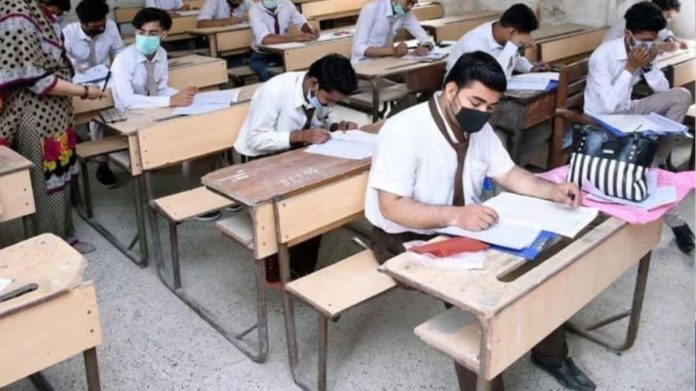Pakistan’s interim government, under the leadership of Caretaker Information Technology and Telecommunication Minister Dr. Umar Saif, has unveiled an ambitious plan to enhance the quality of IT education. To boost employment opportunities, and stimulate the country’s digital economy.
Centralized Examination for IT Graduates
In a recent press conference held in Islamabad, Minister Saif announced the introduction of a compulsory centralized examination for information technology students across the nation. This groundbreaking move aims to establish uniform standards for IT graduates. By ensuring they possess the skills and knowledge necessary to excel in the industry.

Working in collaboration with the Higher Education Commission (HEC). The government will set mandatory standards for IT graduates, and the central examination will become a requirement for all university students pursuing degrees in IT. Graduates who successfully clear this examination will be offered opportunities to participate in practical apprenticeship programs. Hence bridging the gap between academic knowledge and real-world experience.
Bridging the Gap: Skills and Training
Minister Saif further detailed that this initiative will include the training of 16,000 individuals in collaboration with the National University of Technology (NUTECH). The minister’s vision extends beyond education. He envisions that this program will enable up to 200,000 people per year to earn annual incomes ranging from $50,000 to $60,000. This influx of skilled IT professionals into the job market is expected to generate foreign exchange reserves of up to $5 billion annually.
Additionally, Pakistan is set to launch a groundbreaking e-program in the coming weeks. Which will provide a dedicated space for freelancers to work. The initiative, in partnership with the private sector. It aims to offer interest-free loans under the e-Rozgar program, providing a conducive workspace for freelancers to thrive. It is anticipated that this initiative will provide workplaces for up to 500,000 freelancers.
Unlocking Online Payment Platforms
Minister Saif acknowledged the challenges in integrating popular online payment platforms such as PayPal and Stripe. Largely stemming from concerns related to the Financial Action Task Force (FATF) requirements. However, he remained optimistic, emphasizing the government’s commitment to providing these services to the country’s freelancers and businesses.

Furthermore, the government is poised to establish a start-up fund in the next few weeks. Which was backed by support from venture capital firms worldwide. This fund is expected to stimulate the growth of the country’s burgeoning start-up ecosystem. Which facilitates innovation and job creation.
Driving Technological Advancements
In an effort to propel Pakistan’s technological landscape forward, Dr. Saif disclosed plans for 5G technology introduction immediately following the auction of the available 300 MHz spectrum. Moreover, a cell phone financing scheme, designed in collaboration with the Pakistan Telecommunication Authority (PTA). It will enable citizens to purchase high-end smartphones through convenient installments.
Safeguarding Digital Assets
To ensure the cybersecurity of the nation and protect against online data theft, Minister Saif announced the establishment of a dedicated cybersecurity authority within the next few months. This proactive approach underscores the government’s commitment to safeguarding digital assets and maintaining a secure online environment for both businesses and individuals.
Pakistan’s IT sector is poised for a significant transformation, and these visionary initiatives are expected to empower the youth. Stimulating economic growth, and elevate the country’s global standing in the digital arena. Positive developments await the nation as it embarks on this transformative journey towards a brighter digital future.
Stay Tuned to Bramdsynario for latest news and updates.









































